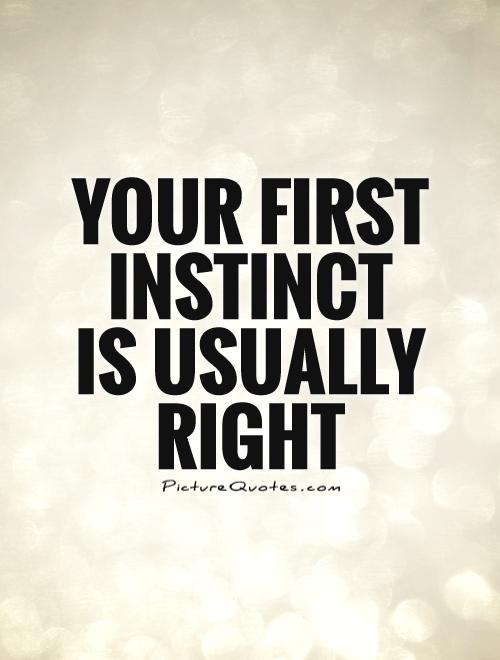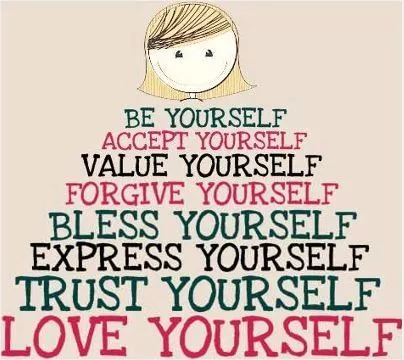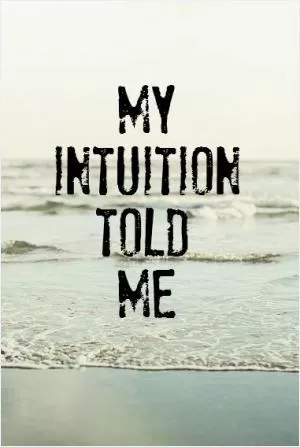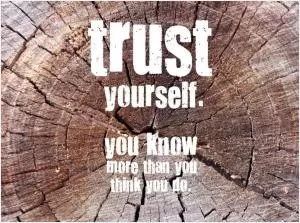Your first instinct is usually right

Your first instinct is usually right
Instinct is a powerful force that guides us in making decisions and taking actions without conscious reasoning. It is often described as a gut feeling or intuition that arises from deep within us. Many people believe that our first instinct is usually right, as it is based on our subconscious mind processing information and experiences that we may not be consciously aware of.Our instincts have evolved over millions of years to help us survive and thrive in a constantly changing and unpredictable world. They are a result of our brain's ability to quickly assess situations and make split-second decisions based on past experiences and patterns. When faced with a new or unfamiliar situation, our instincts kick in to help us navigate through it and make the best possible choice.
In many cases, our first instinct is right because it is based on a combination of our past experiences, knowledge, and intuition. Our subconscious mind is constantly processing information and making connections that we may not be aware of on a conscious level. When we are faced with a decision or a problem, our instincts draw upon this wealth of information to guide us in the right direction.
For example, imagine you are walking alone at night and suddenly feel a sense of unease. Your first instinct may be to cross the street or change your route to avoid a potentially dangerous situation. This instinct is based on your brain's ability to quickly assess the situation and recognize potential threats based on past experiences or cues in your environment.
Similarly, in a high-pressure situation at work, your first instinct may be to trust your gut feeling and make a quick decision based on your intuition. This instinct is often right because it is based on your subconscious mind processing information and patterns that you may not be consciously aware of.
However, it is important to note that our instincts are not always infallible. There are times when our instincts may be clouded by emotions, biases, or external influences, leading us to make the wrong decision. In these cases, it is important to take a step back, reassess the situation, and consider all available information before making a final decision.












 Friendship Quotes
Friendship Quotes Love Quotes
Love Quotes Life Quotes
Life Quotes Funny Quotes
Funny Quotes Motivational Quotes
Motivational Quotes Inspirational Quotes
Inspirational Quotes